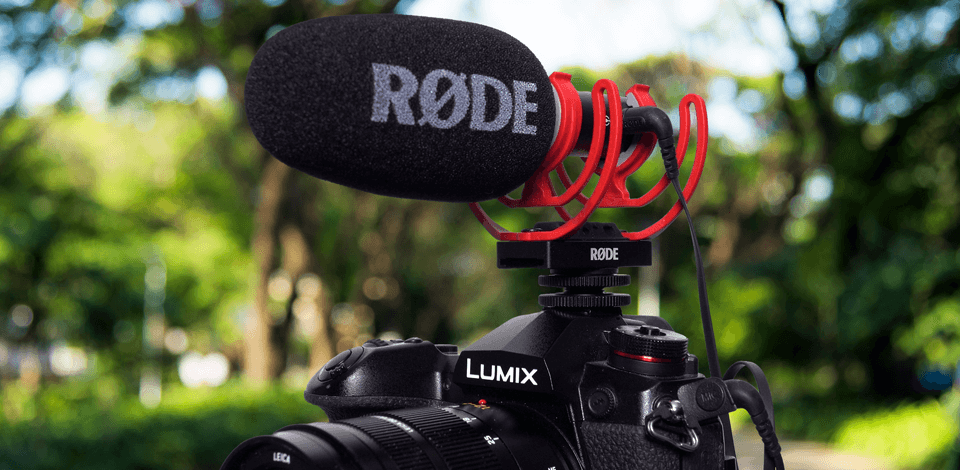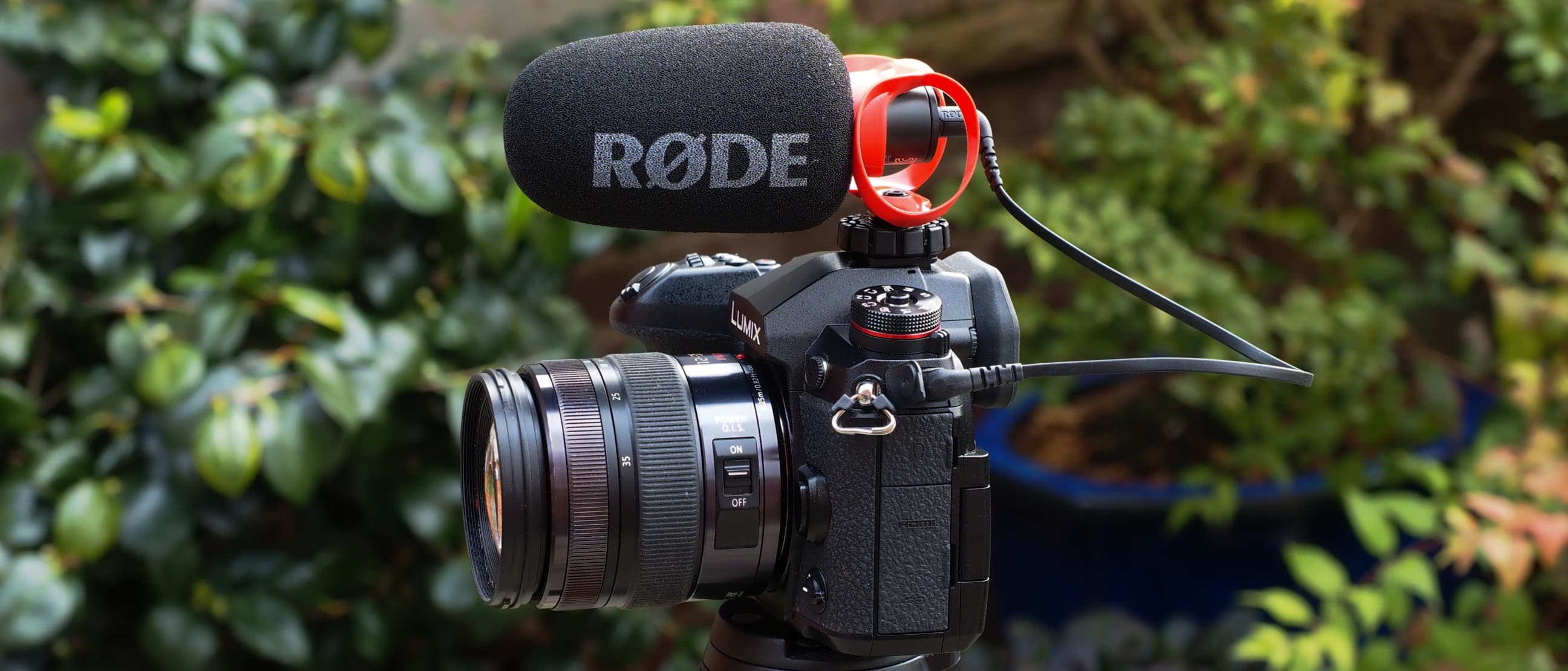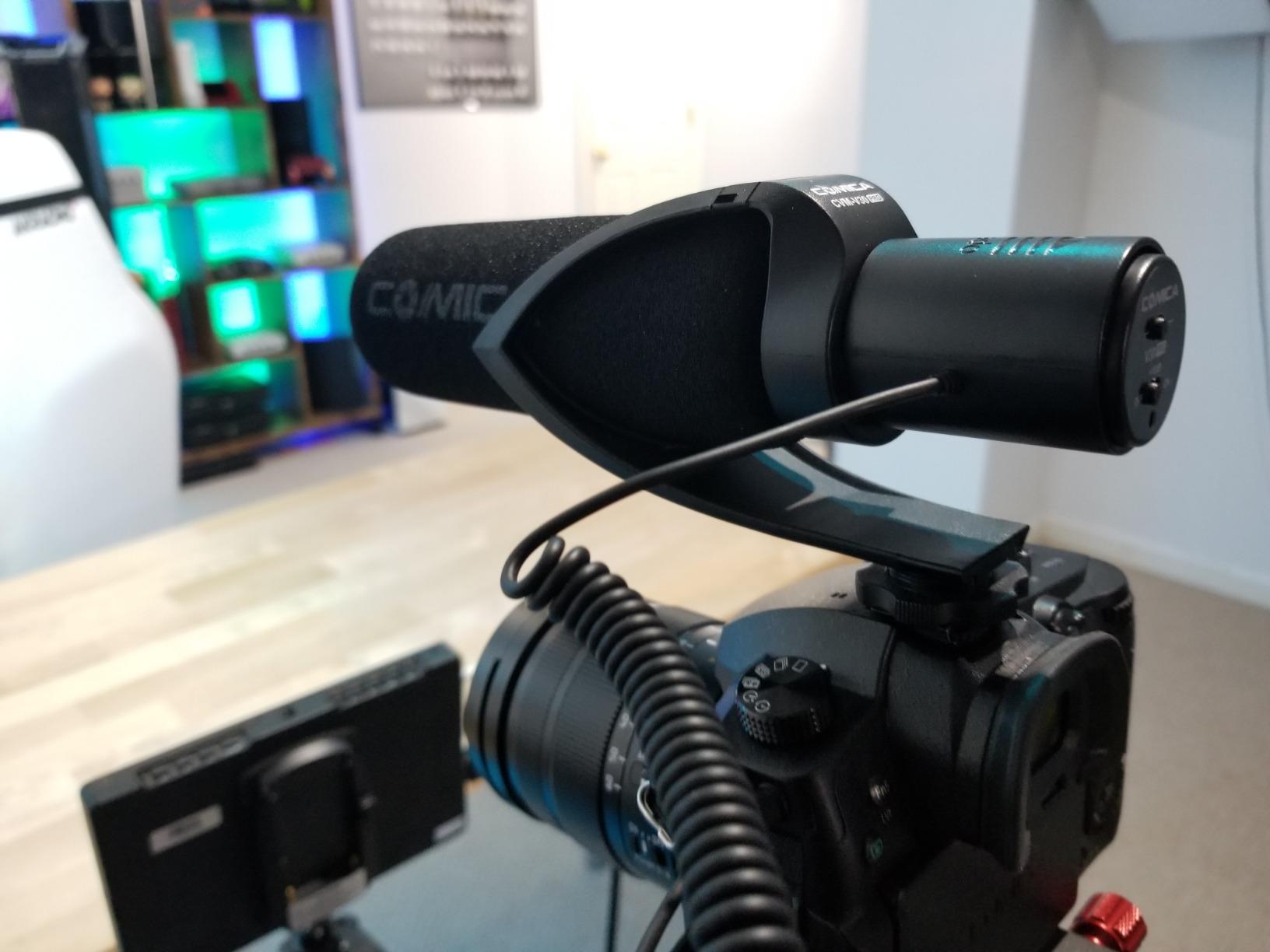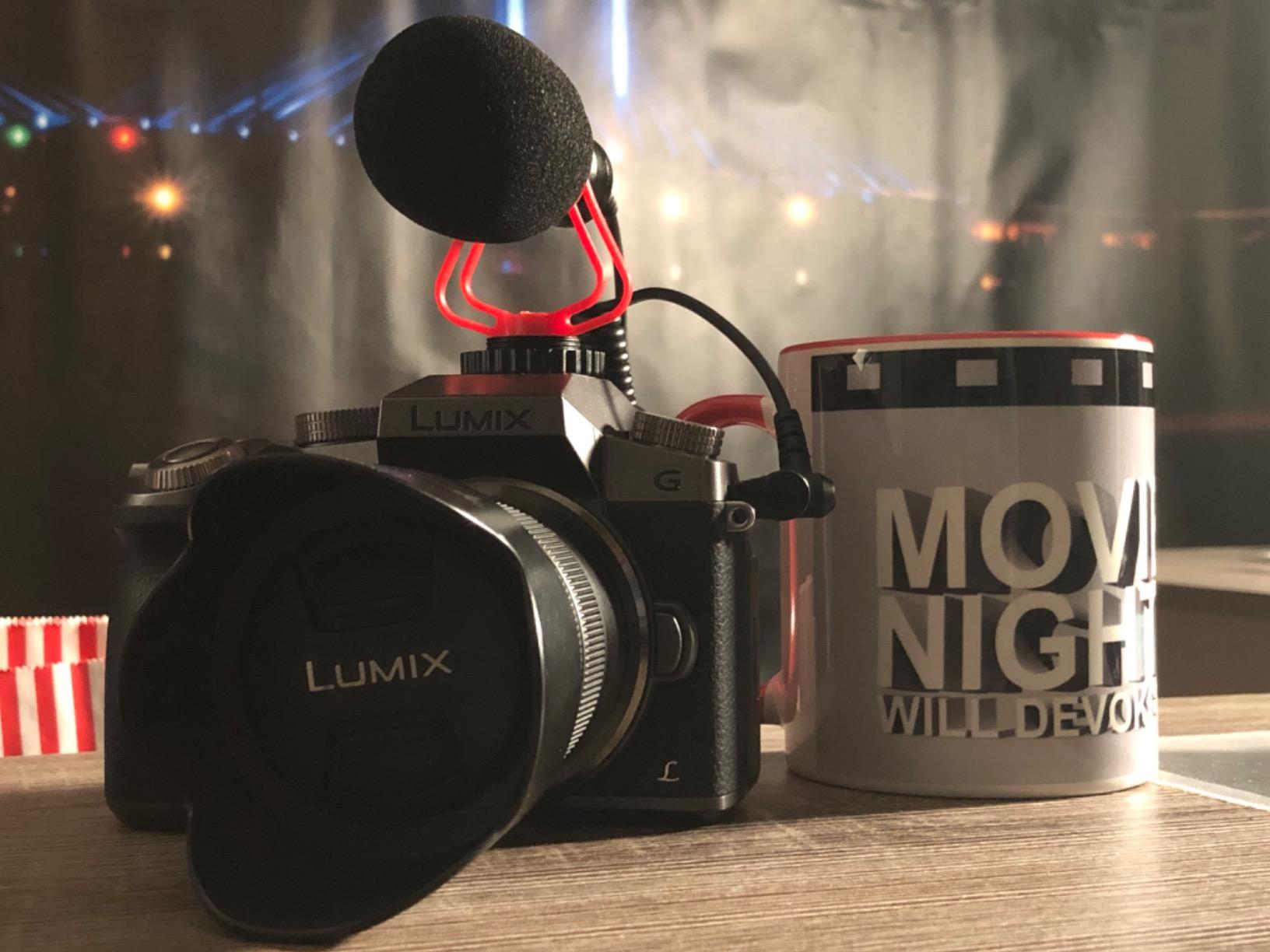
Built-in microphones often record unwanted background noise and cannot capture crisp sound, which is a serious problem when shooting interviews or vlogs. In my case, the external Panasonic Lumix mic helped me reduce the external noise when filming outdoors.
However, the selection of the right microphone for this camera body can become a real challenge, especially for novices, as the market offers a rich variety of models with different features.
| IMAGE | NAME | FEATURES | |
|---|---|---|---|

|
Rode VideoMic GO II
OUR CHOICE
|
CHECK PRICE → | |

|
Movo VXR10
FULLY-EQUIPPED
|
CHECK PRICE → | |

|
NearStream AVM20T
WIRELESS
|
CHECK PRICE → |

The Rode VideoMic GO II is a great and reliable mic, which is absolutely user-friendly. Its compact and lightweight construction makes it a perfect addition to my Lumix setup. It does not weigh down my equipment and delivers exceptional audio quality, which is a considerable plus.
The setup is absolutely straightforward: I only needed to attach the 3.5mm cable and hit the record button. Such a plug-and-play installation with no batteries or switches is a huge plus. The quality of the delivered sound is much better than the one provided by the built-in mics. The difference is especially noticeable when capturing voices and ambient sounds during street interviews.
The availability of the USB-C output allowed me to use this DSLR microphone with my camera and my laptop for voiceovers or live streaming. However, the quality of the cable is mediocre, so I had to be cautious to prevent tangling or accidental disconnections.
Specifications:
|
Audio sensitivity
|
38 decibels
|
|
Signal-to-noise ratio |
79 decibels
|
|
Polar pattern
|
Unidirectional
|
|
Connector type |
3.5mm jack, USB-C
|

The Movo VXR10 is an excellent Panasonic Lumix external microphone, which came in handy when I was working on different recording projects like capturing nature sounds or conducting interviews.
It has a compact design, which makes it perfect for my Lumix camera, keeping my setup light and flexible. Although it is not so expensive, the quality of audio delivered by this mic is enough for vlogging and basic filmmaking.
I like this model because its package includes a furry “deadcat” windscreen, shock mount, and dual 3.5mm cables for various devices. So, Movo VXR10 is versatile and easy to set, which is a huge benefit for newcomers.
But, as my experience showed, the quality of the construction could be better, as the mount broke after a few months of regular use. Although this model is a bad choice for high-speed situations (like recording in windy conditions), it is suitable for most daily tasks or can be used as a cheap microphone for YouTube.
Specifications:
|
Audio sensitivity
|
76 decibels
|
|
Signal-to-noise ratio |
76 decibels
|
|
Polar pattern
|
Cardioid
|
|
Connector type |
3.5mm jack
|

The NearStream AVM20T is an amazing mic model for Lumix users looking for an all-in-one and high-quality wireless solution. I chose this device for recording interviews and vlogs. Moreover, as this is a noise cancelling microphone, I even used it in such busy environments as parks, and AVM20T managed to reduce the background chatter, delivering clear vocals.
Thanks to one-click noise canceling and changeable gain levels, fine-tuning my audio on the go was a worry-free task. Plus, the receiver has a real-time monitoring feature, which is indispensable in situations when I need to spot-check levels quickly.
However, when it comes to using this model with smaller gimbals like the OM4, where the receiver can get in the way, the performance wasn’t satisfactory.
Besides, switching between modes or devices can perplex you, as you’ll have to deal with multiple cables. Despite these, the 656ft has a durable battery and offers excellent range and solid transmission, so it is a great option for most content creators.
Specifications:
|
Audio sensitivity
|
30 decibels
|
|
Signal-to-noise ratio |
60 decibels
|
|
Polar pattern
|
Omnidirectional
|
|
Connector type |
3.5mm jack
|

Comica CVM-V30 PRO is suitable for different Lumix video projects, whereas the low-cut filter and 10dB sensitivity adjustment allow capturing excellent sound even when shooting near busy streets. It came in handy when I needed to isolate voices, as it reduces any unwanted background noise.
The performance of the shock-absorbing mount satisfied me as well. It eliminated most handling noise produced when moving the camera. The cable design is inconvenient, as it often interferes with side-flip screens on some Lumix models, complicating the monitoring. Another minus is that this mic uses AAA batteries, which is not very convenient for shooters.
All in all, the quality of sound is amazing, and the additional features like a low-cut filter allow using this model for different recording scenarios. If you are looking for a decent entry-level microphone for video recording with pro-level features, this option is what you need.
Specifications:
|
Audio sensitivity
|
-33 decibels |
|
Signal-to-noise ratio |
75 decibels
|
|
Polar pattern
|
Super Cardioid |
|
Connector type |
3.5mm jack
|

The Moukey MCM-1 appeals to me with its ability to isolate sounds emitted from the front. This is because of the unidirectional cardioid pattern. After trying out this model, I was pleased with its ability to eliminate any ambient noise from behind my Panasonic camera with extreme efficiency. So, this is probably the best Panasonic Lumix microphone for interviews or vlogs in busy places.
Besides, I really enjoyed using it on the go, as it has a lightweight construction, while the directional sensitivity makes it a great choice for recording dialogues in controlled settings. The microphone is delivered with a shock mount and windscreen, designed to eliminate any ambient noise. This is why this model works perfectly both indoors and outdoors.
Although the construction quality is not on top and you can often lose connection because of inconvenient cable design, this microphone is definitely a decent option in its price range, as it offers focused audio capture and versatility.
Specifications:
|
Audio sensitivity
|
-43 decibels
|
|
Signal-to-noise ratio |
58 decibels
|
|
Polar pattern
|
Cardioid
|
|
Connector type |
3.5mm jack
|
Compatibility with Lumix cameras. Check whether the mic is compatible with the standard 3.5mm TRS socket, otherwise, you won’t be able to connect it directly to the camera. In this case, you will need to acquire a cold shoe or extra adapters. It is crucial to make sure that the mic mounts properly and does not interfere with your other equipment.
Directional or omnidirectional pattern. A shotgun mic with a cardioid or super-cardioid pattern is a perfect option for vlogging or interviews, as it can isolate voices. However, for recording ambient sounds or group conversations, you had better go for an omnidirectional lapel mic.
Size and weight. Panasonic Lumix cameras are portable, so using them with a bulky mic would be a big mistake. Such a setup will be unbalanced, especially using a gimbal or handheld stabilizer. It is better to match these cameras with lightweight and compact mics to maintain maneuverability.
Mounting and shock absorption. I recommend choosing a mic that is delivered with a shock mount or has built-in suspension systems to eliminate vibrations and operation noise. Such a model is great for handheld recording, as it does not turn camera movements into unwanted noise.
Price vs performance. Finally, consider the price-performance ratio when selecting the microphone for your setup. Panasonic Lumix cameras are popular among amateurs and pros, so there’s no one-size-fits-all. Decide on the most important features for your recording sessions like noise cancellation, clarity, or durability, and pick the model that offers the best value for your specific requirements.